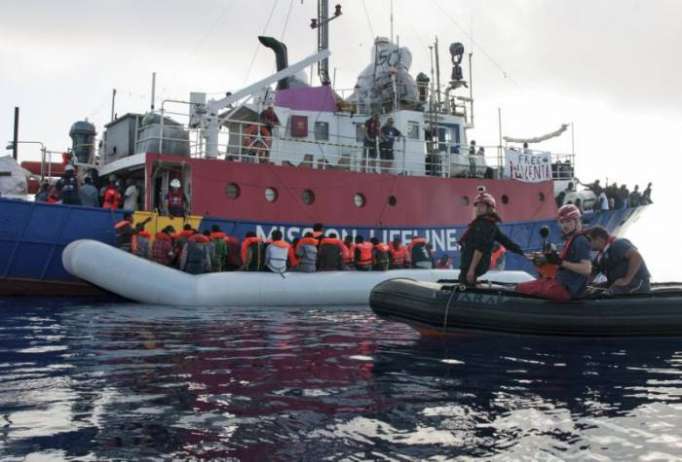The leaders of about 16 countries — more than half the 28-nation bloc — will take part in what is being billed as "informal talks" in Brussels, ahead of a full EU summit on June 28-29, where migration will top the agenda.
German Chancellor Angela Merkel said Friday that the meeting involves "talking with particularly affected nations about all problems connected with migration." She said the hope is to see if "we can reach bi-, tri- or even multinational agreements to better solve certain problems."
The arrival of more than one million people in 2015, most fleeing conflict in Syria and Iraq, exposed glaring deficiencies in EU migrant reception capacities and asylum laws. It has fueled tensions among member states, and anti-migrant parties have won votes by fomenting public fears of foreigners.
At the heart of the problem lie deep divisions over who should take responsibility for arriving migrants — often Mediterranean countries like Italy, Greece and increasingly Spain — how long they should be required to accommodate them, and what should be done to help those EU countries hardest hit.
The problem was crystalized last week in a row between Italy's new populist government, Malta and France over who should take responsibility for 630 people rescued from the Mediterranean Sea off the coast of Libya, the main departure point for people trying to reach Europe.
Amid the mud-slinging, Spain's new Socialist government agreed to take charge of the migrants.
By Friday, hardline Italian Interior Minister Matteo Salvini was again demanding that Malta, the EU's smallest country, allow a rescue ship carrying hundreds of migrants to land because it was in the island's waters.
Like everything to do with migrants in Europe lately, even this meeting is proving controversial. What started as talks between half a dozen leaders now involves at least 16, as others demanded to take part. Four countries in Eastern Europe — the Czech Republic, Hungary, Poland and Slovakia — refuse to attend.
Referring to hasty arrangements and a domestic crisis over migration policies within Merkel's coalition government, the fervently anti-migrant Hungarian prime minister, Viktor Orban, said: "We understand that countries have domestic political difficulties, but this can't result in pan-European confusion."
"This is an open invitation. Nobody is excluded, everybody is invited. Nobody is forced to attend either," said Alexander Winterstein, spokesman for the European Commission, where the talks will take place.
With plans to reform Europe's asylum laws bogged down, EU leaders will in coming days affirm their intention to stop migrants leaving north African shores by paying countries like Algeria, Egypt, Libya, Morocco and Tunisia to hold people until their eligibility for asylum can be established.
Ironically, the tough talk comes as migrant entries drop significantly. The U.N.'s refugee agency says that around 80,000 people are expected to arrive by sea this year, around half the number from 2017.
"We do not have a crisis of numbers. We continue to have a crisis of political will," UNHCR Europe chief Sophie Magennis said Monday.
AP
More about: migration
















































